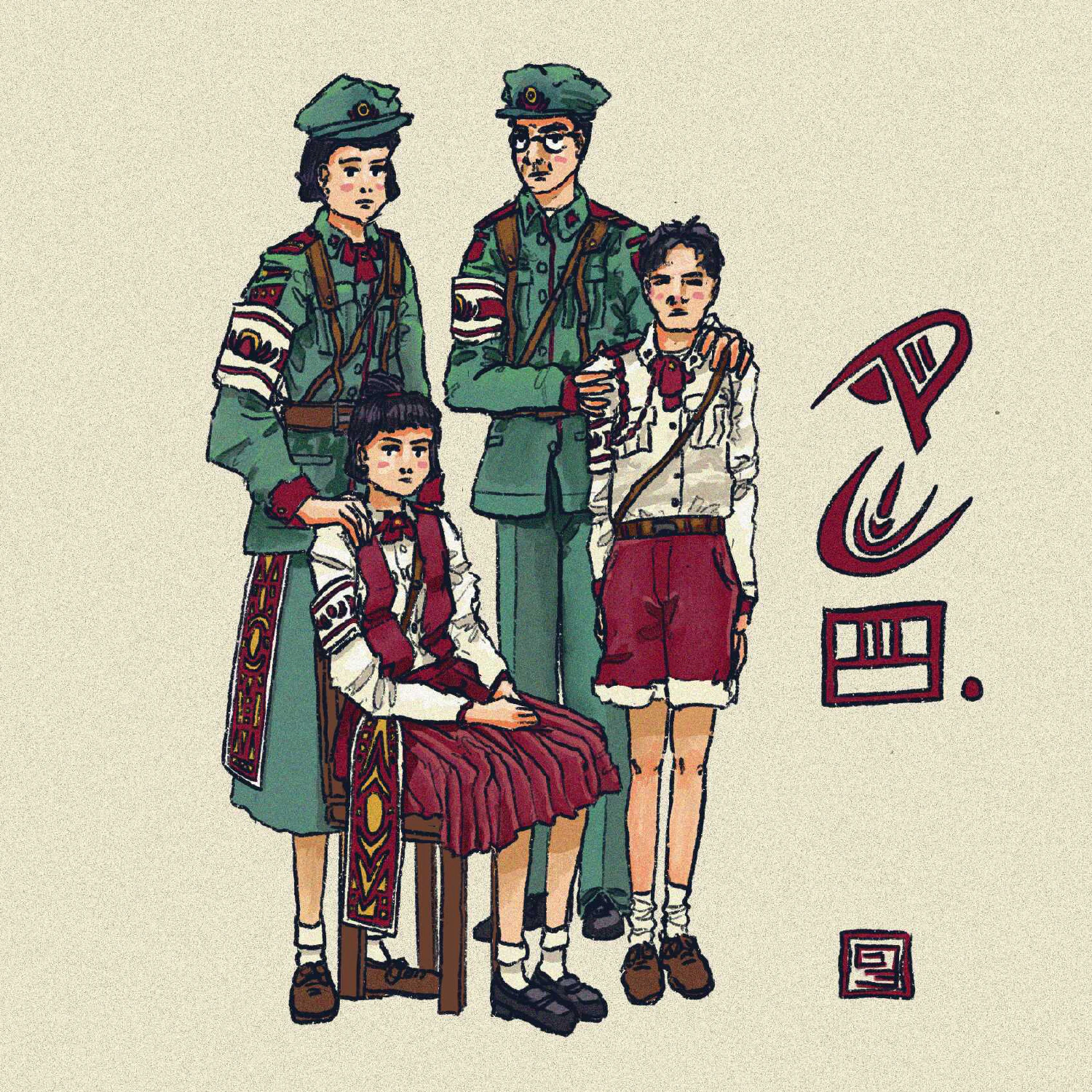NEW Story: Sunday Morning
The Forgotten Generation

This article is not part of Vekllei canon. It may be old, obsolete or just a bit of fun.
We best know Vekllei as a dense society of utopia and great infrastructure today, but there was blood in that crucible. It is difficult to imagine that only fifty years ago these streets were unpaved and impassible with the rubble of old society. Shadows on concrete marked the souls lost in the arrogance of the monarchy. The nuclear fire was pregnant with a new generation of people, who, in the principles of upen, would forge a new society out of the ruins of the old.
Back then girl’s shirts weren’t made of cotton and you wore holes in your shoes. He was part of the budoinetnoikotet, or the ‘war children’. His parents had lived through the first atomic war, and he was the born in the shadow of it.
In that time the currency had completely collapsed, and so people traded within their own communities in an awkward return to preindustrial life. Often, people’s best clothes were their uniforms, and so that was what they took photos in. This photo sits on the commode in the living room, next to a vase of lilies.
He remembered sour details of his teen-age impetuosity. How he insisted he remove his glasses for the photo, insulting his bespectacled father in doing so. How his mother argued with his sister over the appropriate length of her fountain hairpiece. The women wore their family gi, ceremonial quarter-pleats, and he’d had his hair cut.
He thought a lot about his sister, Amelie. She was beautiful and clever and had a weird sense of humour. He’d loved her a lot. She confided in him as teen-agers— about problems with friends, her rampant insecurities, her dreams of the future. It turned out she’d had a beast in her lungs and it took her when she was fifteen. That was how it went back then, in the poverty of the city. To think a hundred years earlier tuberculosis had been a rumour. That is what war does to a country. He was not even afforded the dignity of anger. The English had been right to bomb them.
Life was different now, of course. Vekllei was strong, and although he was not much wealthier, there was more to be had. The country had flourished in the ruins of the old society. Now he watches his own child sport the uniform his sister once wore, and when she smiles at him she looks like Amelie.
Vekllei developed rapidly in the face of total destruction. In the space of fifty years the country consolidated infrastructure and its rural population into a powerful city-state of autonomous, rugged agrarian hamlets, they themselves flowers of the extinct monarchy and military junta. In some ways it was an exciting time to be alive – there was now plenty to be had. No-one was hungry. But the children of those interim years have almost been erased from common memory entirely, as bastards of Vekllei’s story of utopia and violence.
Thanks for stopping by. Follow me on reddit from misc. things, and check out www.vekllei.city fer more.
I love questions. thanks.
